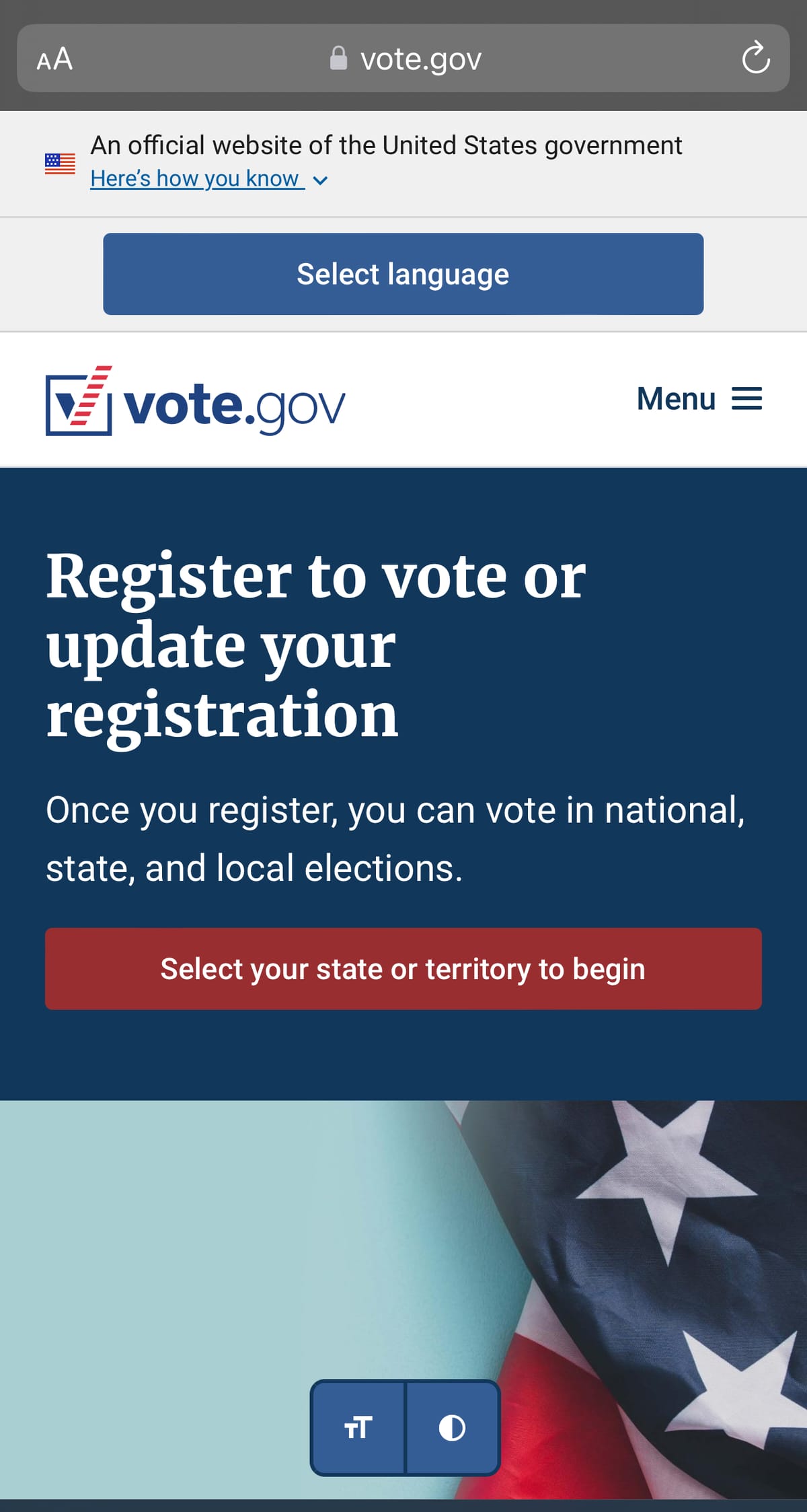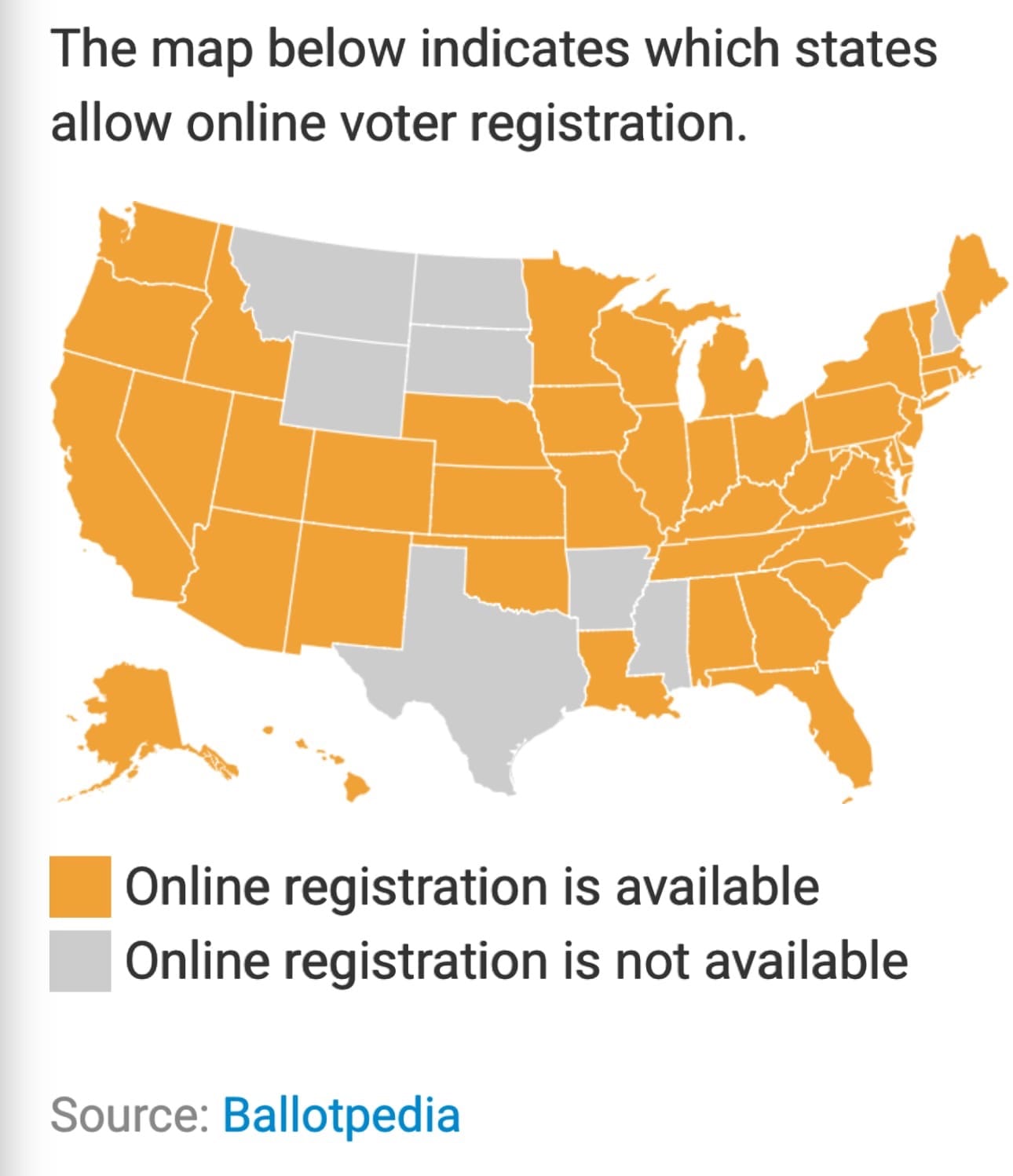A rebooted Vote.gov makes voting information more accessible to all Americans

Hello from rainy DC! Alex here with an especially civic text, sent much later than normal. Maybe you’re up late? Or you’re reading this tomorrow morning?
Regardless, I have good news about our government that will be overlooked. It‘s the sort of thing that I bet you subscribed to learn about, in fact.
🗳️ 🇺🇸 💪 1250 days after President Joe Biden directed General Services Administration to upgrade Vote.gov, the agency’s technology service has launched a more responsive, accessible website in 20 languages that better informs all Americans.
It‘s important to recognize at the outset that Vote.gov does not enable Americans to vote online, as I did in 2020. There are still very good reasons why Americans won’t vote on our smartphones this Election Day.

Instead, Vote.gov connects us to the 42 states — and DC and Guam! — where Americans can register online, or to the websites of the 8 states where cannot to request a voter registration form or get information about where to register in person.
In a future where all 50 states and US territories have online voter registration and a secure application programming interface on the backend, it’s possible that we could use Vote.gov — or the excellent Vote.org — to easily register or update our voter registration.
In the interim, this version of Vote.gov will have to do for 2024.
🆕 What did GSA just ship?
🇺🇸17 languages, accommodating 96% of the American public: Amharic, Arabic, Bengali, Chinese, French, Haitian Creole, Hindi, Khmer, Korean, Portuguese, Russian, Spanish, Tagalog, Vietnamese, Navajo & Yu’pik.
🇺🇸Plain language
🇺🇸High-contrast web designs
🇺🇸Accessibility statement + compatibility with screen readers, screen magnifiers, & speech-recognition software (#A11y).
🇺🇸email to flag issues with accessibility: section508-vote@gsa.gov.
🇺🇸A feedback form in English & Spanish.
🇺🇸A sitemap
😎 What’s COOL? The improvements to Vote.gov (and USA.gov) were built WITH the American people!
The team conducted “interviews with eligible voters from a wide range of backgrounds,” held “working sessions with disability advocacy groups representing people with limited vision, cognitive disabilities, and other conditions,” & created “online surveys asking Vote.gov users why they visited the site and if they found what they were looking for.”
To put it another way, the GSA asked Americans to help improve federal government websites — and paid us for an hour of our time to do so.
🗣️What’s notable that you might not realize at first glance?

As technologist Waldo Jaquith noted over on Mastodon, “Vote.gov's support of Native American languages is a big deal, difficult, and somewhat unlike supporting any other languages. Supporting Navajo is both about ensuring that Navajo speakers can use Vote.gov and also about supporting the Navajo language and respecting Navajo sovereignty.”
🇺🇸 Bottom line: Great work by the GSA — in partnership with U.S. Election Assistance Commission, and the American people — that we all can celebrate.
I hope that we now see President Joe Biden do so, and then uses the bully pulpit to encourage us all to vote.
I hope he directs the White House, every Cabinet secretary, agency director, and administrator to use their communications capacity encourage every eligible Americans to register to vote using vote.gov, which will forward us on to state websites to register to vote
We should set a national goal: 200 million registered voters and 75% voter participation on Election Day. I hope you will encourage everyone you know to register and turn out: democracy is not a spectator sport!
As always, you can reach me at alex@governing.digital with comments, questions, suggestions, or other feedback. If you find these newsletters useful, please share with your networks and communities. Thank you for your continued support!



